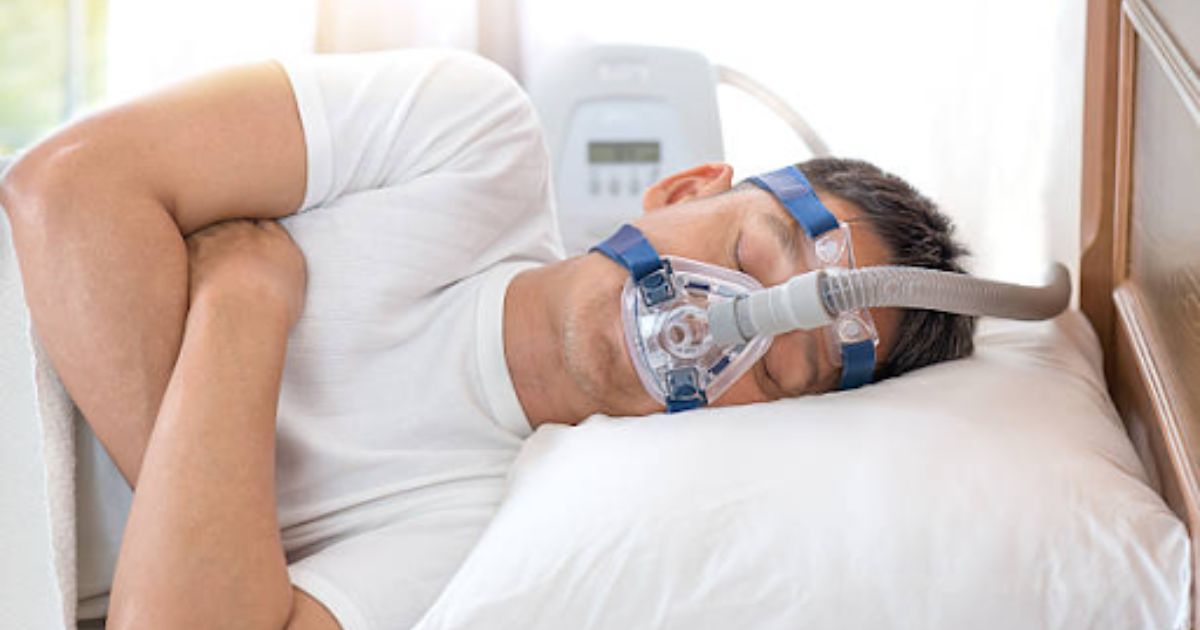Sleep apnea is a disorder where your breathing repeatedly stops and starts as you sleep. If you snore and you usually feel fatigued even after a full night of sleep, you may have sleep apnea.
Obstructive sleep apnea (OSA) is the most common type of sleep apnea. This occurs because your throat is narrowed as you sleep, stopping airflow. Snoring is a loud sound caused by air squeezing through that narrow space. Sleep apnea studies have shown that OSA is more likely to occur in older and overweight males.
Sleep Apnea Treatments
Sleep apnea treatments center around preventing air flow obstructions. Common methods of treatment include:
- Weight Loss – Fat deposits around the upper airway can obstruct breathing, leading to snoring and sleep apnea symptoms.
- Nasal Decongestants – Your airway can open up through the use of nasal decongestants. These are more likely to be effective in milder forms of sleep apnea.
- Continuous Positive Airway Pressure (CPAP) – The CPAP machine has to be kept on overnight and is the first line of treatment for OSA. A face mask delivers airflow to keep your airways open as you sleep. A dental device may be needed to keep your lower jaw positioned forward.
- Bilevel Positive Airway Pressure (BiPAP) – If CPAP therapy is ineffective, BiPAP machines are specialized to respond to changes in your breathing.
- Surgery – If other sleep apnea treatments don’t work, surgical procedures such as Uvulopalatopharyngoplasty (UPPP) and Tracheostomy may be able to correct structural problems in the throat.
Does Medical Insurance Cover Sleep Apnea Therapy?
If you have been diagnosed with sleep apnea, or you are showing sleep apnea symptoms, one of your primary concerns might be financial. Will your medical insurance cover the sleep apnea treatments that your doctor might recommend?
The short answer: Yes, sleep apnea treatments are covered.
The most correct answer: Whether or not you receive coverage will depend on your insurance provider’s policies, your sleep apnea treatment prescription, and even your geographic location. The best way to answer your insurance and other financial questions would be to talk to your provider directly.
CPAP Therapy and Insurance
CPAP therapy is the most common sleep apnea treatment prescribed to patients. Because it is so ubiquitous, it’s generally covered by most health insurance providers. Deductibles, copayments, and the amount of coverage may vary by provider and by state. Supplies are covered separately, so again, you can get all the information you need by contacting your insurance provider directly.
If your dental insurance is separate from your medical insurance, coverage may be different for oral treatments and oral appliances prescribed by your doctor.
Medical Insurance for Your Sleep Apnea Treatment
Sleep apnea is a disorder caused by the narrowing of your airway as you sleep. One of the first signs of sleep apnea is snoring. If you have been diagnosed with any form of sleep apnea, your treatment is likely to be considered medically necessary, so your medical insurance provider will cover your expenses.
Inform your doctor about your budget as well as your options when it comes to medical insurance. He or she will prescribe sleep apnea treatments that your insurance provider will cover and suggest cost-effective solutions to help your condition.
Sleep Apnea Treatment in Jacksonville, FL
Are you looking for a sleep apnea specialist in Jacksonville, FL? Jacksonville Sleep Center has the best sleep specialists in the area. We give patients our undivided attention, and we give them the latest options for sleep assessment and treatment. Get in touch with us and start your journey towards a more restful sleep today!






